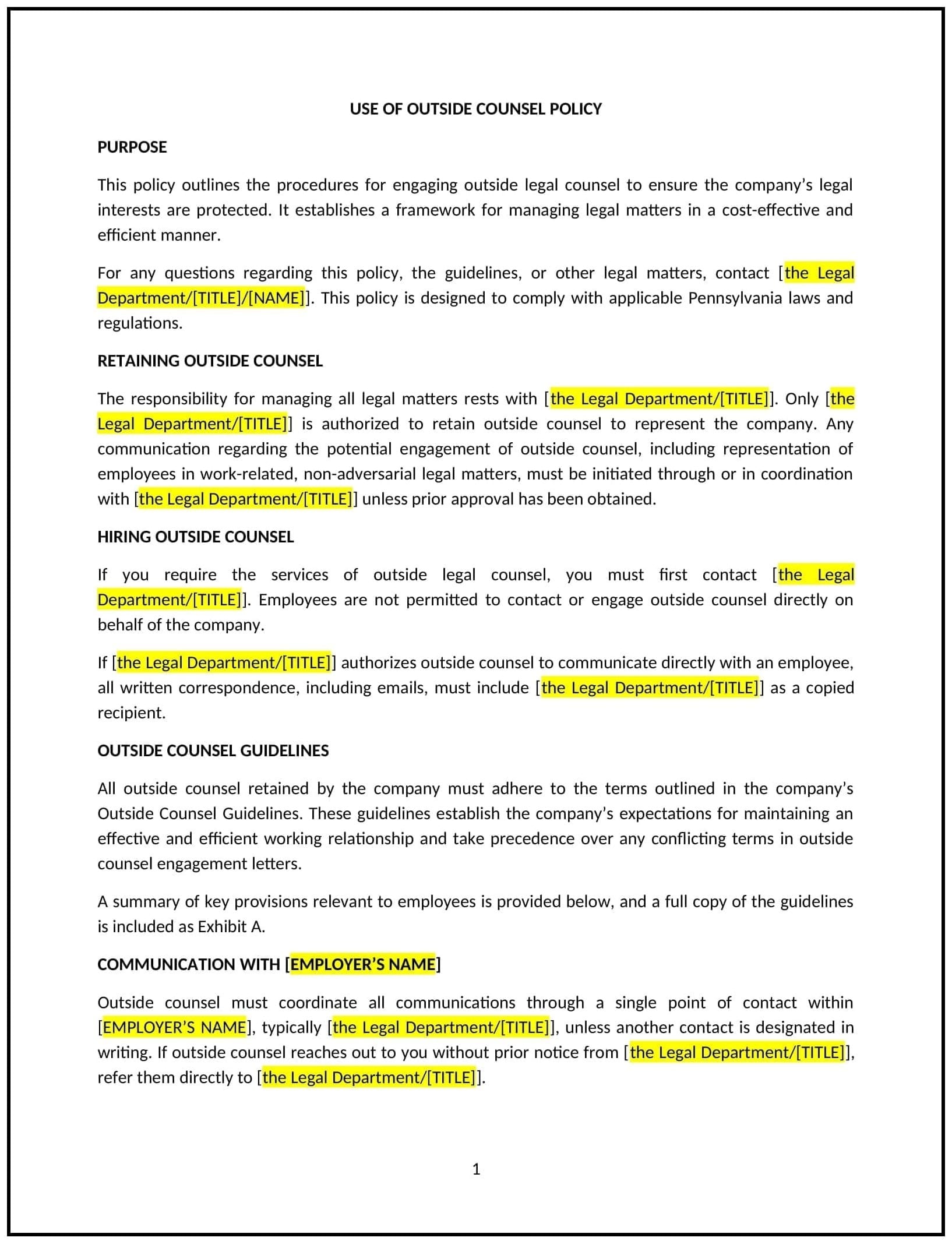Use of outside counsel policy (Pennsylvania): Free template
Got contracts to review? While you're here for policies, let Cobrief make contract review effortless—start your free review now.

Customize this template for free
Use of outside counsel policy (Pennsylvania)
This use of outside counsel policy is designed to help businesses in Pennsylvania establish clear guidelines for engaging external legal services. By defining when and how outside counsel should be used, this template ensures consistency, cost-efficiency, and effective legal support for business operations.
By using this template, businesses can manage legal risks, control expenses, and ensure proper oversight of legal matters.
How to use this use of outside counsel policy (Pennsylvania)
- Define when to engage outside counsel: Clearly outline scenarios that require external legal expertise, such as litigation, regulatory compliance, contract review, or intellectual property matters.
- Include authorization procedures: Specify who within the organization has the authority to approve the use of outside counsel and allocate related budgets.
- Address selection criteria: Provide guidelines for choosing legal firms or practitioners, including their expertise, cost structure, and reputation.
- Require documentation: Emphasize the importance of maintaining records of agreements, communications, and invoices related to legal services.
- Reflect Pennsylvania-specific considerations: Tailor the policy to address state-specific regulations or industry practices that may require local legal expertise.
Benefits of using a use of outside counsel policy (Pennsylvania)
A well-structured use of outside counsel policy supports legal compliance and cost management. Here's how it helps:
- Mitigates legal risks: Ensures access to specialized expertise for handling complex legal issues.
- Controls costs: Establishes clear procedures for managing legal expenses and budgeting for outside counsel services.
- Promotes consistency: Provides a structured approach to engaging external legal services across the organization.
- Enhances accountability: Ensures documentation and oversight of outside counsel engagements, improving transparency.
- Reflects local needs: Addresses Pennsylvania-specific legal requirements or industry practices, ensuring relevant and effective legal support.
Tips for using a use of outside counsel policy (Pennsylvania)
- Communicate the policy: Share the policy with relevant employees and departments to ensure they understand the process for engaging outside counsel.
- Monitor legal expenses: Regularly review legal spending to ensure alignment with budgetary goals and business priorities.
- Maintain strong relationships: Build collaborative relationships with external legal providers to enhance the quality of service.
- Document engagements: Keep detailed records of all interactions with outside counsel to ensure accountability and transparency.
- Review periodically: Update the policy to reflect changes in Pennsylvania laws, industry trends, or organizational needs.